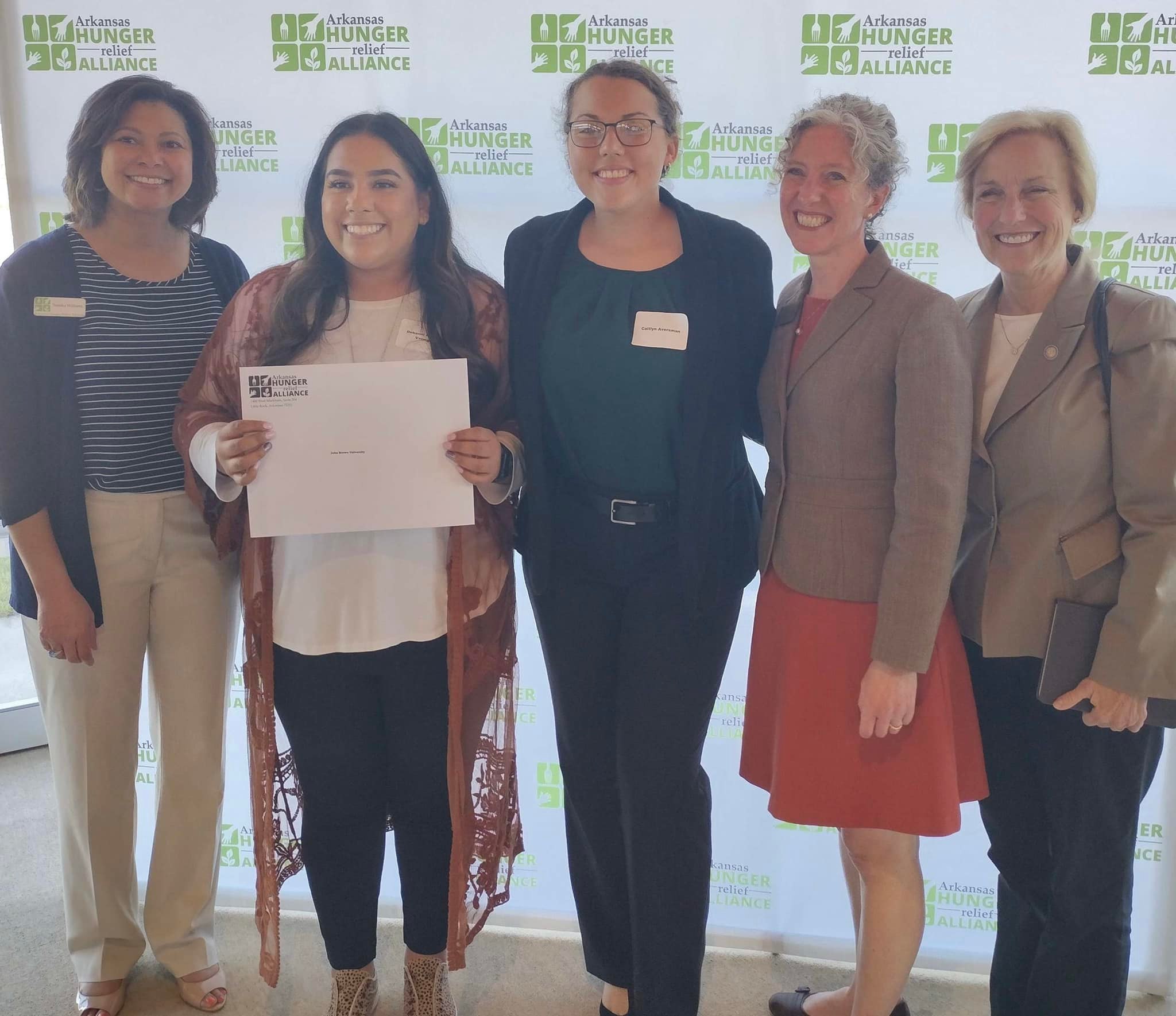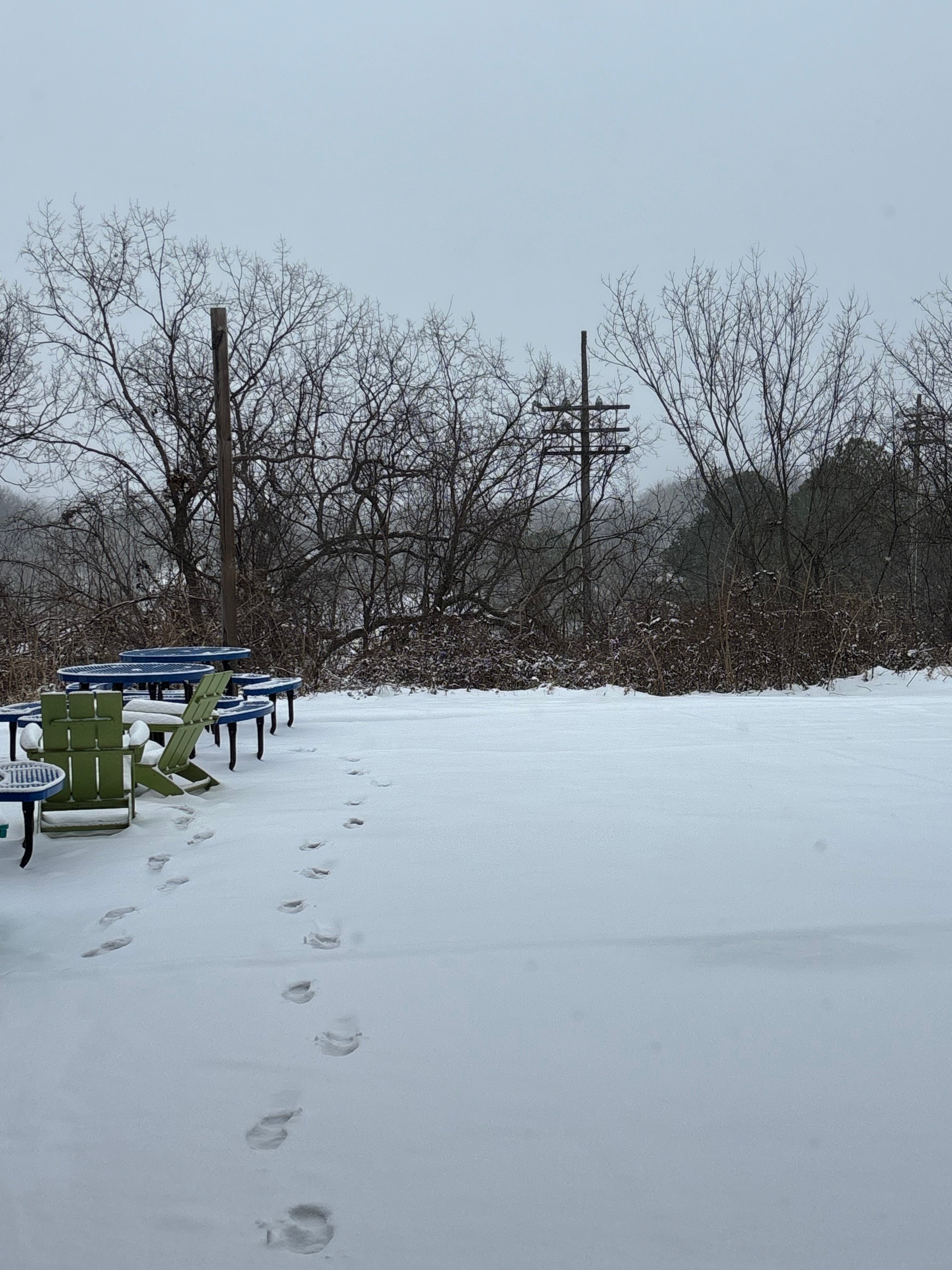![]()
The lack of reliable access to affordable, nutritious food is a reality that one in five Arkansans face, according to the Arkansas Food Bank. In 2009, the Natural State ranked #1 in the nation in childhood hunger, and, as of 2020, Arkansas was among the top 10 states with the highest rates of food insecurity in the country.
While the COVID-19 pandemic increased the number of food insecure Americans, it also shed a light on what thousands of households had already been experiencing and sparked a conversation on how to mitigate the damaging effects of hunger and malnutrition.
Numerous measures to address food insecurity that arose in the wake of the pandemic included investigating and passing legislation that would aid impoverished communities severely impacted by hunger and food insecurity.
One of such initiatives took place on April 14 in Little Rock. Honors Arkansas, an alliance of honors educators across Arkansas, and the Arkansas Hunger Relief Alliance joined forces to host the first statewide hunger summit to discuss food insecurity on college campuses.
Trisha Posey, director of the honors scholars program at John Brown University, attended the summit along with three JBU honors students who have researched food insecurity on campus and the broader Northwest Arkansas region: seniors Caitlyn Aversman, political science major, Beth Abdo, nursing major, and Deb Ramirez, junior psychology major.
“Last semester, students from across the state met via Zoom to learn about food insecurity and responses to it, specifically in Arkansas,” Posey explained. Besides discussing topics related to poverty and hunger, students also researched food insecurity on their own campuses.
Over 30 colleges and universities were represented at the summit, and 24 schools received a $1,000 check and a one-year membership in the Alliance to access grants and resources, according to a press release by the Arkansas Hunger Relief Alliance.
“Staff at the University of Arkansas got connected with Cathy Webb, who is head of the Arkansas Hunger Relief Alliance, and she was very interested in our students’ work,” Posey said. “[Webb] wanted to get our students connected with legislators who are thinking about food insecurity and hear from each other about what is happening on our campuses.”
Arkansas State Representatives Les Warren (R), Joyce Elliott (D), DeAnn Vaught (R), Clarke Tucker (D) and Tippi McCullough (D) were present at the summit, sharing their own initiatives in legislation on how to address food insecurity in the state.
“I was really impressed with a lot of the innovation happening at the legislative level, and I’m really impressed with the ways that people across political lines are working together to address the problem of food insecurity,” Posey said. “Often, what we hear about in the news is political polarization and how Republicans and Democrats don’t work well together, but this is one issue on which I see our state legislators working very well together because they have a common cause.”
One current policy that stood out to students, according to Posey, is the asset limit of $2,250 for access to SNAP benefits, one of the most restrictive limits in the country. “There seems to be a good deal of momentum toward either raising or completely eliminating the asset limit, and students would like to see this happen. A lot of legislators would like to see this happen,” said Posey.
The summit, sponsored by the Garcia Family Arkansas Fund, was an opportunity for students to showcase their year-long research. Aversman presented her findings on collegiate food insecurity at JBU, while Abdo talked about food insecurity in the Marshallese community. Ramirez, who runs the university food pantry, shared her experience working with commuter students on campus.
For Posey, one of the key takeaways from the summit is to normalize the conversation about food insecurity. “I think that a lot of students, faculty and staff are unaware that a number of our students experience food insecurity,” said Posey. She promotes “acknowledging that it is here and then, when hearing friends talk about skipping meals or not being able to afford food for a couple of days, being proactive and directing those friends to the food pantry.”





